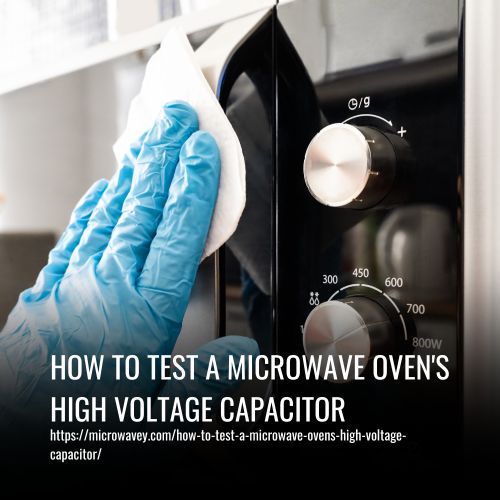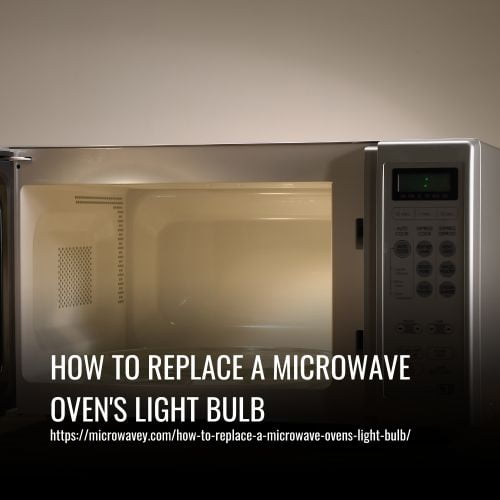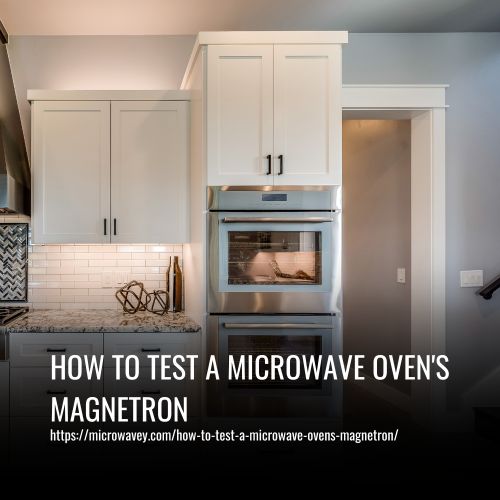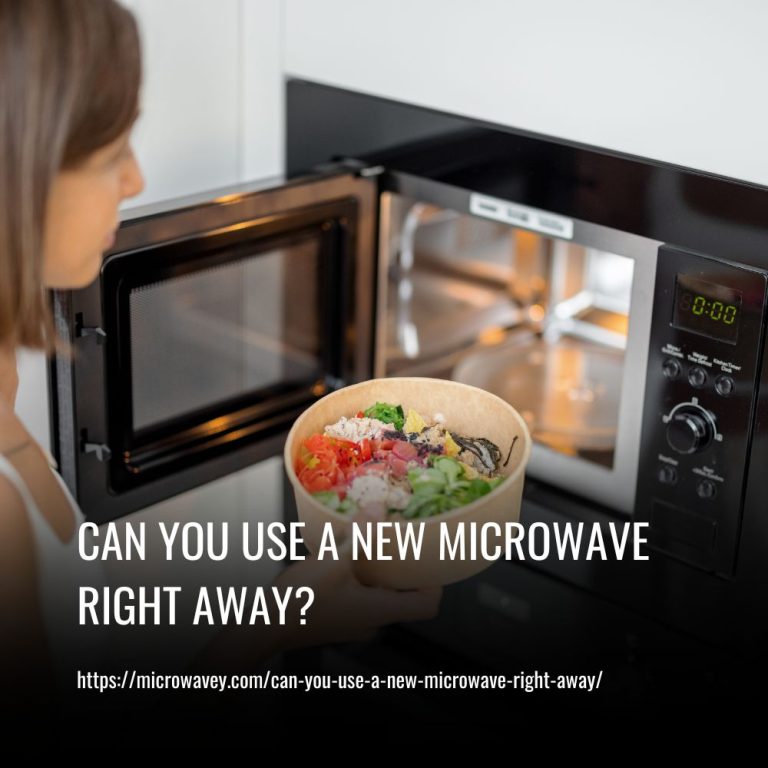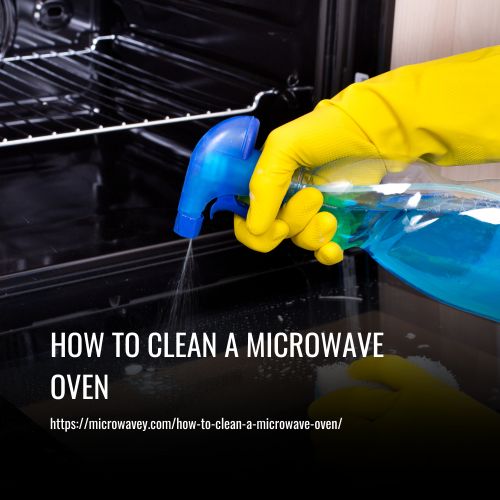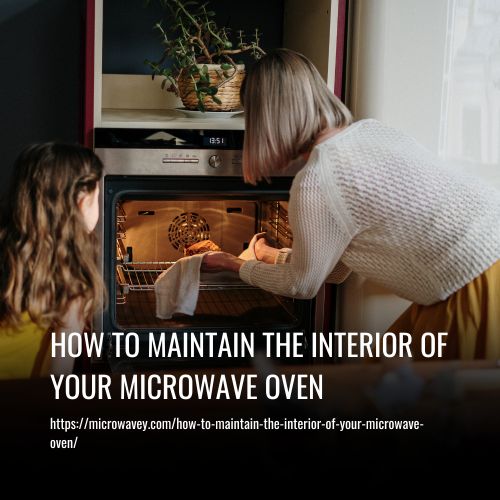What To Do If Your Microwave Oven Is Not Working Properly
Microwave ovens have become an essential kitchen appliance for many households, making meal preparation quick and convenient. But what happens when your microwave oven is not working properly? It can be frustrating and disruptive to your daily routine, especially if you rely on it for heating up meals or snacks. Don’t worry, there are steps you can take to troubleshoot and potentially fix the issue.
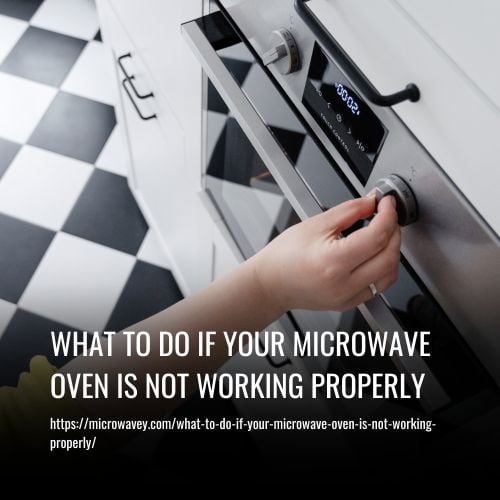
What To Do If Your Microwave Oven Is Not Working Properly
1. Unusual Noises
I recently had a call from Mrs. Smith who was desperately worried about her microwave oven. Upon inspection, I found that the appliance was making some very unusual noises and she feared it could be an overheating issue. After further examination, I noticed that there were strange arcing sounds coming from inside the machine and the smell of burning plastic filled the air.
This particular model of microwave oven has been known to have issues with its electronic components so I immediately suggested we replace them. We performed this repair quickly and efficiently and by the time we left Mrs. Smith’s kitchen, her microwave was up and running again as good as new!
2. Unresponsive Buttons
If the buttons of your microwave oven are unresponsive, it could indicate a wiring or parts issue. To diagnose the problem properly, we need to inspect the internal components and do some testing. It’s possible that faulty wiring is preventing electrical currents from reaching the necessary switches, or that defective parts are not working correctly.
To get to the root of this problem, we’ll have to take apart your appliance and check for any loose connections between each component. We might even recommend replacing certain parts if they appear to be damaged beyond repair. With careful investigation and attentive servicing, you should soon have a fully functioning machine once again!
3. Unusual Odors
Have you ever noticed your microwave oven is not heating the food properly or emitting a burnt smell? If so, it could be due to an unresponsive heat source. The first thing I would suggest doing if your microwave oven isn’t working properly is to check for any signs of damage such as wires that may have come loose. It’s also important to ensure the power cord and plug are securely connected at both ends.
If none of these solutions solve the problem, then it’s likely that there is something wrong with the internal components of your microwave oven. A professional technician should examine this issue, as trying to fix it yourself can put you in danger of electric shock or further damaging the appliance.
Additionally, many microwaves feature electronic touchpad controls, which require special knowledge and experience for repair work – leaving this job best left to a trained expert who knows what they’re doing.
4. Interior Light Issues
If you’re having problems with your microwave oven, the first thing to check is the interior light. If it doesn’t come on when you open the door, this could be a sign of an issue with the bulb itself or potential wiring issues. Make sure to check if there are any loose connections and try replacing the bulb before moving onto other areas of repair.
You should also pay attention to any strange smells coming from inside your microwave while it’s running. A burnt smell can indicate that something in the system isn’t running correctly and may need professional attention.
In addition, paying attention to how hot or cold the interior temperature gets while it’s operating can help diagnose deeper issues like a faulty heating element or ventilation blockage. This can help determine where repairs might be needed so you don’t end up spending too much time solving unnecessary problems.
5. Poor Cooking Performance
When it comes to microwaves, poor cooking performance is one of the most common issues. It could be that your food isn’t getting cooked evenly or at proper temperatures. You may have noticed a difference in texture when you take out your food from the microwave.
Before jumping right into troubleshooting, let’s investigate this theory further and look at what can cause these problems:
- Cooking temperature: If the power level setting on your microwave oven is too low, then this can result in unevenly cooked food.
- Food Texture: Old or frozen foods will cook differently than fresh ones, so check expiration dates before putting them in the microwave oven.
- Timing: Incorrect timing settings can also lead to improperly cooked meals – make sure to set timers correctly for optimal results.
- Location: Make sure that your microwave oven is placed away from any walls as they can affect its overall performance.
No matter which issue you’re experiencing with your microwave oven, there are plenty of ways to go about fixing it yourself if need be. Be sure to read up on safety precautions and always unplug appliances before attempting repairs!
6. Sparks Or Smoke
If you start to notice sparks or smoke coming from your microwave oven, it’s time to take action. First of all, unplug the appliance immediately and move away from it. There may be a burning smell or melted plastic that could indicate a serious fault with the wiring or other components in the unit. If this is the case, then don’t attempt any repairs yourself – instead contact an authorized repair technician. They can carry out assessments and provide you with advice on how best to fix the issue.
Additionally, they will also advise whether replacement parts are needed for more extensive repairs. Therefore, if there appears to be something wrong with your microwave oven, get in touch as soon as possible so that it doesn’t become a bigger problem down the line!
7. Door Not Closing Properly
Upon further inspection, it appears that the handle of your microwave oven is unresponsive. This could be due to a number of factors including rusty hinges or misalignment caused by an overtightened hinge screw. To remedy this problem, I suggest you first check for any rust on the hinges and remove them with a wire brush if there is any present. Next, realign the door so that it closes properly and then tighten the screws firmly but not overly tight.
If these steps do not fix the issue, a more comprehensive repair may be necessary. If neither method succeeds in repairing the door’s issues, then it may be time to consider replacing some components of your oven such as worn out springs or faulty latches. You can take care of this yourself if you have experience working with appliances or call someone who specializes in appliance repairs. In either case, make sure to order compatible parts specifically made for your model of microwave oven.
8. Timer Not Working
If your microwave oven is still not working properly after the door has been adjusted, then it may be a timer issue. If so, you will need to check if the timer knob has become stuck or broken and needs replaced. You should also look for any overheating issues that could be causing the problem with stale food potentially being one of the causes.
To diagnose these issues further, you’ll want to thoroughly inspect all wiring around your unit and make sure none have become loose or detached. Check the power cords too as they are often overlooked when diagnosing electrical problems. From there, take out all removable parts such as fan blades, filters and vents to ensure nothing has blocked them from functioning correctly. Finally, clean up any dust buildup which can impede proper airflow and cause other components to overheat.
9. Poor Ventilation
If your microwave oven is not working properly, it could be due to poor ventilation. A blockage in the air circulation can prevent the appliance from heating food at the right temperature and time. To check for a ventilation problem, open up the back or side of the unit and look around for any kind of obstruction that may be blocking airflow. If you find something, remove it carefully so as not to damage any parts inside.
You should also make sure that all vents are clear and unobstructed by dust or dirt buildup. This can help ensure proper air flow throughout the entire unit and improve its performance. If none of these steps resolve your issue, then it may be necessary to contact an appliance repair technician for further assistance.
10. Power Outage
It’s a real bummer when your microwave oven decides to quit working. It can be the worst feeling in the world, especially if you’re used to having quick and easy meals with it. But don’t worry – there are ways to fix it! First off, check for any power outages. If nothing has changed on that front, then take a look at the wiring inside of your appliance. Overheating issues or faulty wiring could be causing the malfunction – so make sure all connections are secure and none have come loose.
Check whether the door is closing properly too, as this might also cause issues. And last but not least, try resetting the circuit breaker just to be safe! If these steps do not resolve your problem, contact an experienced repair technician who can help diagnose what may be wrong with your microwave oven and provide advice on how best to proceed with repairs.
FAQs
Is It Safe To Repair A Microwave Myself?
When it comes to repairing a microwave oven, it’s important to ask yourself if you’re confident enough to tackle the job. DIY tips can be helpful, but it’s often best to call in professional help. I always advise my clients that safety is paramount and they should never attempt any repair work themselves unless they feel completely comfortable with their knowledge and skillset. If there are doubts then seeking expert assistance is highly recommended as tackling complex repairs could result in serious injury or worse.
What Are Common Causes Of Microwave Malfunctions?
Ahh, the age-old dilemma of a malfunctioning microwave. You’re not alone – it happens to everyone at some point! As an appliance repair technician, I can tell you that there are many common causes of this problem which range from incorrect cooking times and power levels to faulty door switches. If your beloved kitchen companion starts misbehaving, don’t worry…a few simple troubleshooting steps can help get it running like new again in no time!
What Kind Of Maintenance Is Required To Keep My Microwave Working Properly?
When it comes to maintaining your microwave and keeping it in working order, there are a few key components you’ll want to pay attention to. Firstly, check the power supply – make sure everything is connected properly and that no cables have become frayed or disconnected from wear-and-tear over time. Additionally, keep an eye on the thermal fuse of your machine; if this fails then your appliance won’t be able to function correctly. If you’re unsure about any of these steps then don’t hesitate to reach out for professional help as microwaves can hold dangerous voltages!
How Long Should A Microwave Last?
On average, a microwave oven should last around 8-10 years with proper maintenance and care. However, this could vary depending on the brand, model and how often it is used. Repair costs for microwaves can be expensive, so if your appliance is nearing the end of its lifespan or starts having problems you may want to consider replacing it instead. To ensure your microwave has a long life, regular cleaning and maintenance is key – including wiping down surfaces after each use and checking that all parts are working correctly.
How Can I Tell If My Microwave Needs To Be Replaced?
It’s a scary thought – you fire up your microwave to prepare dinner, only for it to start sparking or behaving erratically. You might be wondering if it needs replacing. As an appliance repair technician, I can tell you that the safest thing to do is check for power issues and signs of wear and tear first before making any decisions about replacement. If there are obvious signs of aging such as frayed wires, burnt-out parts or discoloration then it may be time for a new one. But if you notice something more subtle like flickering lights or inconsistent heating then it could just indicate a problem with the wiring or other components which can usually be fixed in no time! To ensure safety, always consult with an experienced professional when dealing with any kind of electrical problems.
Conclusion
When it comes to fixing or replacing a malfunctioning microwave, the decision is ultimately yours. However, if you find yourself overwhelmed by the task and in need of professional help, don’t hesitate to reach out! We appliance repair technicians are all too familiar with common causes of microwave malfunctions that can be easily remedied with just a few minutes of our time. But even when we aren’t around, there are still some maintenance steps you can take on your own to keep your microwave working properly for as long as possible.
Regularly cleaning away crumbs and food particles from inside your oven will go a long way towards prolonging its life. Additionally, make sure to replace any burned-out light bulbs as soon as they stop working – these play an important role in ensuring safety during operation.

